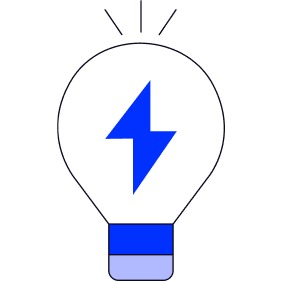
Verbesserter Kundenservice
NLP hilft Ihnen, das Feedback Ihrer Kunden zu verstehen, um maßgeschneiderte Antworten zu geben.

Natürliche Sprachverarbeitung (Natural Language Processing, NLP) ist ein Teilgebiet der künstlichen Intelligenz, das es Computern ermöglicht, menschliche Sprache zu verstehen und darauf zu reagieren. NLP kann sowohl strukturierte als auch unstrukturierte Daten verarbeiten, wie zum Beispiel E-Mails, Videos und PowerPoint-Präsentationen. Durch den Einsatz von NLP können Maschinen Informationen aus verschiedenen Datentypen extrahieren und analysieren. Ein Beispiel dafür ist die Umwandlung gesprochener Worte in einer Video-Präsentation in Text, den NLP dann weiterverarbeiten kann. Auf diese Weise kann NLP aus unstrukturierten Eingaben strukturierte Ausgaben generieren.
NLP hat viele Vorteile und macht die Kommunikation mit Computern menschenähnlicher und verständlicher.


NLP hilft Ihnen, das Feedback Ihrer Kunden zu verstehen, um maßgeschneiderte Antworten zu geben.

Natürliche Sprachverarbeitung erkennt verdächtige Aktivitäten durch Textanalyse.

NLP extrahiert selbstständig und schnell wertvolle Informationen aus unstrukturierten Daten.

NLP erkennt menschliche Stimmungen und bewertet digitales Kunden-Feedback zu Ihren Produkten oder Dienstleistungen entsprechend präzise.

NLP ermöglicht präzise Übersetzungen und damit barrierefreie globale Kommunikation.

Dank NLP verstehen intelligente persönliche Assistenten jeden Benutzerbefehl.












Natürliche Sprachverarbeitung (NLP) findet heute in verschiedenen Branchen und Arbeitsbereichen Anwendung. Im Gesundheitswesen werden mithilfe dieser Technologie Daten aus unstrukturierten Patientenakten extrahiert, um die gesundheitliche Versorgung zu verbessern. Im Kundenservice kommt NLP zum Einsatz, um die Interaktionen mit Chatbots zu optimieren. In der Steuerverwaltung unterstützt NLP die Verarbeitung und Analyse von Steuererklärungen und Dokumenten, um Genauigkeit und Betrugserkennung zu gewährleisten. Auch die Hotelbranche nutzt die natürliche Sprachverarbeitung, um Kundenfeedback besser zu verstehen. Im Technologiesektor treibt NLP die Entwicklung von Sprachassistenten und Suchmaschinen voran und verbessert so die Interaktion zwischen Mensch und Computer.
















Robotic Process Automation (RPA) greatly benefits from advancements in Artificial Intelligence (AI). While RPA is excellent at following rules-based processes, AI provides the capability for RPA bots to learn, adapt, and make decisions, enhancing their functionality. AI-powered cognitive capabilities like Natural Language Processing (NLP), Machine Learning (ML), and Computer Vision enable bots to understand and respond to text or voice commands, learn from historical data, and recognize images, respectively. For instance, in customer service, AI-powered RPA can analyze customer sentiments in real-time, allowing bots to handle customer complaints and queries more effectively, delivering personalized responses and improving overall customer experience.
